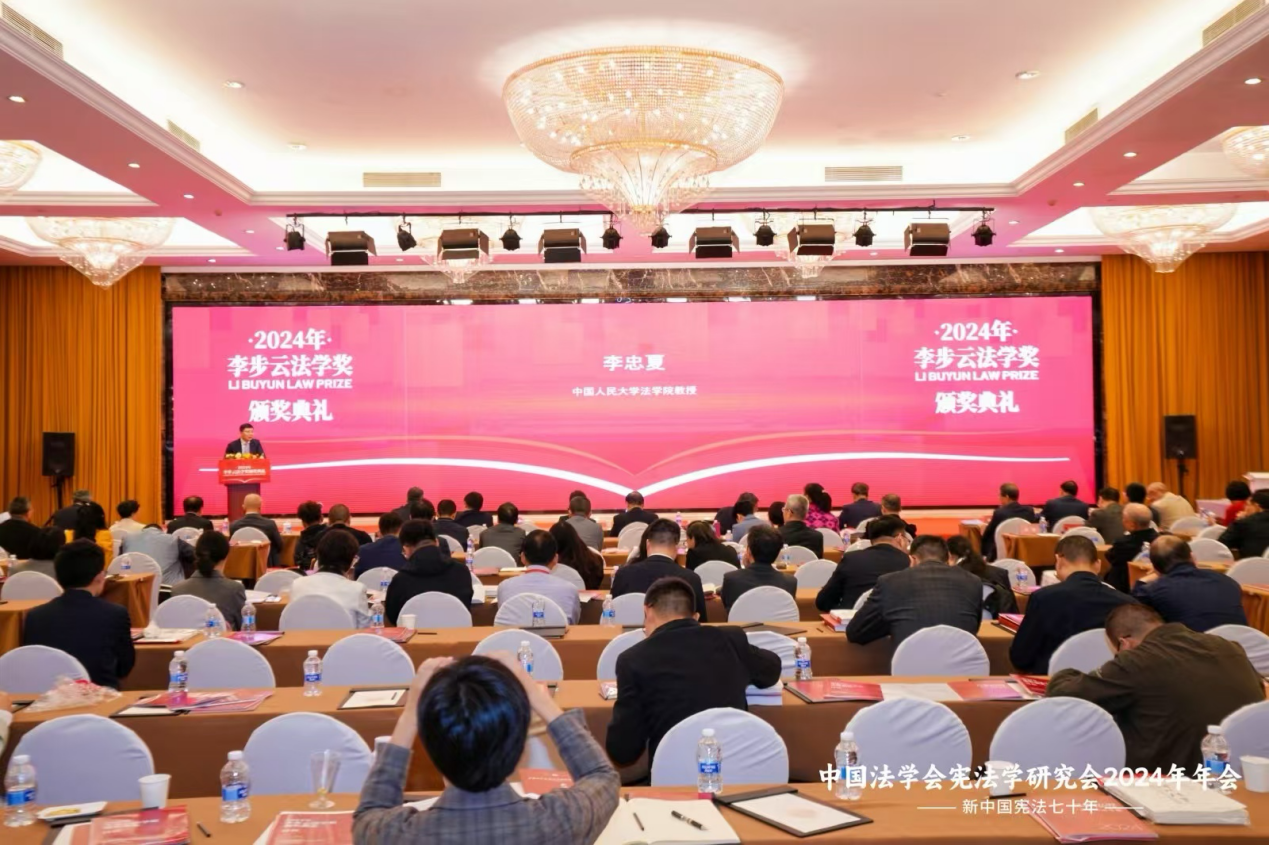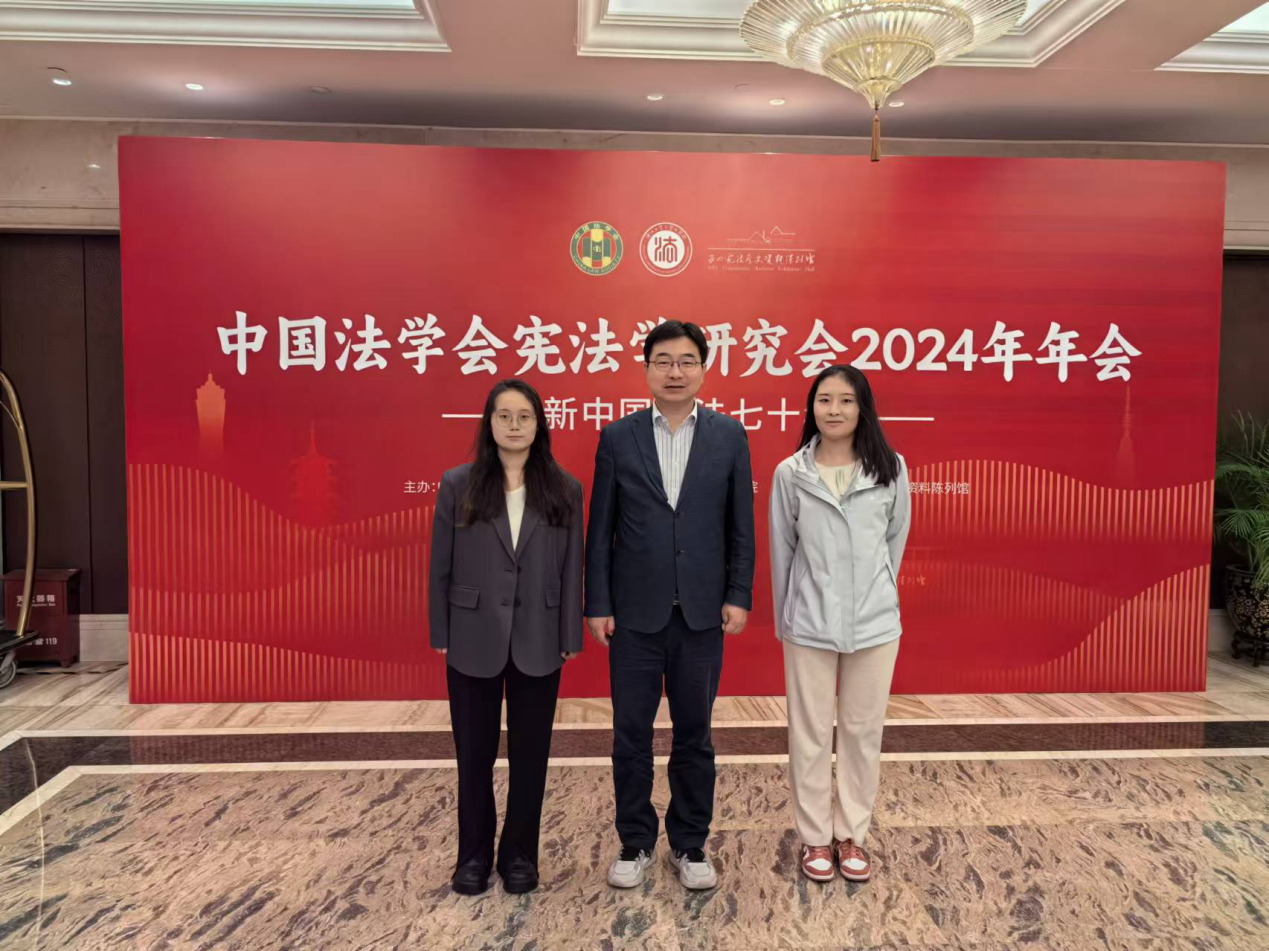
From October 26 to 27, the 2024 Annual Conference of the Association of Constitutional Law of China Law Society was held in Hangzhou, Zhejiang. The theme of this annual conference was "Seventy Years of the Constitution of New China". It was hosted by the Association of Constitutional Law of China Law Society, organized by the Law School of Zhejiang University of Technology, and co-organized by the "May Fourth Constitution" Historical Materials Exhibition Hall. More than 300 experts and scholars from universities, research institutes and practical departments across the country attended the conference.

The annual conference, beyond the opening and closing ceremonies, featured two plenary sessions and three sub-forums, spanning a duration of one and a half days. Throughout the event, the Institute convened its Standing Council Meeting and General Council Meeting. The conference also saw the presentation of the 11th Outstanding Scientific Research Achievement Award for Young and Middle-aged Constitutional Scholars, along with the selection of distinguished papers for the conference.
Zhang Wenxian, a member of the Party Leadership Group and the Director of the Academic Committee of the China Law Society, Zheng Shuona, the Vice President of the China Law Society and President of its Constitutional Law Research Association, Xu Jie, a member of the Party Leadership Group and the full-time Vice President of the Zhejiang Law Society, Hu Jun, the Vice President and Party Committee Member of Zhejiang University of Technology, among other distinguished leaders, graced the opening ceremony with their presence and delivered inspiring speeches. The ceremony was elegantly presided over by Mo Jihong, an academician of the Chinese Academy of Social Sciences, Director of the Institute of Law, Dean of the School of Law at the University of Chinese Academy of Social Sciences, and the Executive Vice President of the Association of Constitutional Law of the China Law Society.

Ding Juan, a master's student at the Law School of Beijing Normal University, participated in this annual academic conference. Her paper, "Changes in the Functions of the State: From the May Fourth Constitution to the New Era" (with her tutor as the first author and herself as the second author), was selected for inclusion in the conference proceedings. In her comprehensive article, she delves into the following issues: The constitutional provisions regarding "state ownership" of land and natural resources present significant theoretical challenges to the Chinese legal community, particularly within the constitutional and civil law domains. Scholars across various legal disciplines have offered a spectrum of interpretations based on their respective perspectives. While each proposal has its merits, they fail to resolve the underlying contradictions, and the definitive placement of "state ownership" within the legal system remains elusive. Taking a functionalist approach, the analysis of the evolution of functions, from the inclusion of "state ownership" in the 1954 Constitution to the addition of "urban land belongs to the state" in 1982, and further to Xi Jinping’s Thought on Socialism with Chinese Characteristics for a New Era, sheds light on the original intent behind the constitutional provision of "state ownership." This examination suggests using state-owned natural resources, urban land, state-owned enterprises, and other assets as material foundations to advance the realization of a "common prosperity" modernization with Chinese characteristics. From a constitutional policy standpoint, the construction of state ownership should be legislated, clearly delineating the scope and limits of state ownership. This should allow for ample room for private property and the private sector while ensuring that the state's valuable resources are optimally utilized to benefit the entire populace. The ultimate aim is to foster a concept of "state ownership" that embodies shared ownership, co-governance, co-construction, and sharing.

